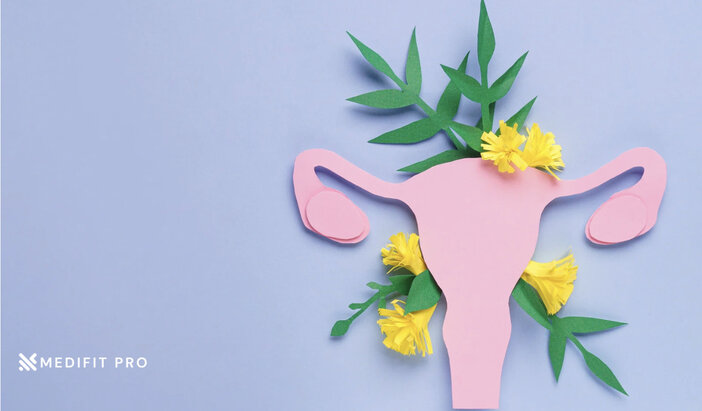Conceiving Your Dream
Conceiving a child is one of the most special experiences a person can have. It’s a beautiful journey filled with hope, excitement, and a touch of uncertainty. For many couples, it’s a dream come true, but for others, it can be a source of stress and frustration. Understanding your reproductive health is key to achieving your dream of starting a family. In this article, we will explore the importance of reproductive health for fertility, the common causes of infertility, and the various treatment options available to help couples conceive.
The Importance of Reproductive Health
Reproductive health is the overall well-being of the reproductive system, including the ability to conceive and have a healthy pregnancy. Achieving and maintaining reproductive health is essential for couples who are trying to conceive.
Proper nutrition, regular exercise, and maintaining a healthy weight are all key factors that contribute to overall reproductive health. In addition, avoiding smoking and limiting alcohol consumption can also help improve fertility. It’s also important to manage stress levels as stress can negatively impact fertility by affecting hormone levels and ovulation.
Common Causes of Infertility
Infertility is defined as the inability to conceive after a year of regular, unprotected intercourse. There are many causes of infertility, and it can be caused by a combination of factors. Some of the most common causes of infertility include:
• Ovulation disorders: Ovulation disorders are the most common cause of infertility in women. They occur when the ovaries do not produce or release eggs.
• Fallopian tube damage: Damage to the fallopian tubes can prevent the egg from reaching the uterus and sperm from reaching the egg.
• Endometriosis: Endometriosis is a condition in which the lining of the uterus grows outside of it, which can cause infertility by blocking the fallopian tubes or making it difficult for an egg to implant in the uterus.
• Polycystic ovary syndrome (PCOS): PCOS is a hormonal disorder that can cause irregular periods and make it difficult for a woman to ovulate.
• Age: One of the most important things to understand about fertility is that it declines with age. For women, fertility starts to decline in the mid-to-late 20s and continues to decline until menopause. This decline is due to a decrease in the number of eggs that a woman has, as well as changes in the quality of those eggs. By the time a woman reaches her late 30s, her chances of getting pregnant naturally are significantly reduced, and by age 40, the chances of getting pregnant are less than 5%
Fibroids: Fibroids can cause heavy or prolonged periods, pain during sex, and in severe cases, infertility or miscarriage. To know more about fibroids, click Uterine Fibroids: From Symptoms to Treatment
• Male infertility: It’s important to also note that fertility is not just a women’s issue, men’s fertility also declines with age, and certain lifestyle factors such as smoking, exposure to toxins, and stress can also negatively impact sperm health and decrease chances of conception. Therefore, both partners should consider their reproductive health and make the necessary changes to improve their chances of conception. There’s an article on Erectile Dysfunction which may contribute towards infertility. To read that, click Understanding Erectile Dysfunction
• Unhealthy Lifestyle: An unhealthy lifestyle can have a negative impact on fertility, eating junk food and lack of physical activity, weight gain, can badly hurt the chances of a woman getting pregnant. There are certain food options which can help women in boosting their fertility. To know more about them, click Top 10 vegan foods for women’s reproductive health
• Stress: It’s also worth noting that stress can have a negative impact on fertility. Stress can affect the hormones that regulate ovulation, and it can also affect the quality of the eggs. Additionally, stress can impact the sperm quality in men.
Treatment Options
There are several treatment options available for couples struggling with infertility. The treatment options will vary depending on the cause of the infertility, but common treatments include:
• Medications: Medications such as clomiphene citrate and gonadotropins can be used to stimulate ovulation in women with ovulation disorders.
• Intrauterine insemination (IUI): IUI is a procedure in which sperm is directly inserted into the uterus, increasing the chances of fertilization.
• In vitro fertilization (IVF): IVF is a procedure in which eggs are removed from the ovaries and fertilized with sperm in a lab before being transferred to the uterus.
• Surgery: Surgery can be used to repair damaged fallopian tubes or remove endometrial growths.
• It’s important to note that some couples may need to consider assisted reproductive technology (ART) such as IVF, if other treatments are not successful.
• By managing stress through practices such as yoga, meditation, and mindfulness, can help to improve your chances of getting pregnant.
• A healthy lifestyle can have a positive impact on fertility, and maintaining a healthy weight, eating a balanced diet, and getting regular exercise can all help to improve your chances of getting pregnant.
• Fertility tracking apps and Ovulation kits: These can also be helpful for couples trying to conceive.
•Fertility Preservation:Another important aspect is ‘Fertility Preservation’ which includes options such as egg freezing, ovarian tissue freezing and sperm freezing, to help individuals and couples proactively plan for their future fertility needs.
• Emotional support:It is also important to seek emotional support from counseling and support groups for couples struggling with infertility. And seeking help sooner rather than later when trying to conceive as the chances of success increase.
• In conclusion, achieving and maintaining reproductive health is essential for couples who are trying to conceive. Understanding the common causes of infertility and the various treatment options available can help couples navigate the journey of starting a family. It’s important to consult with a fertility specialist to determine the best course of action for your individual situation. With the right approach and support, couples can increase their chances of conceiving their dream.
Reference


























Recent Comments